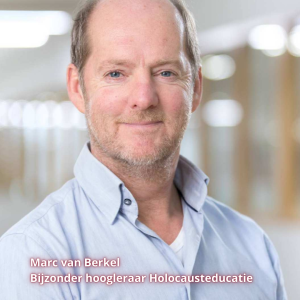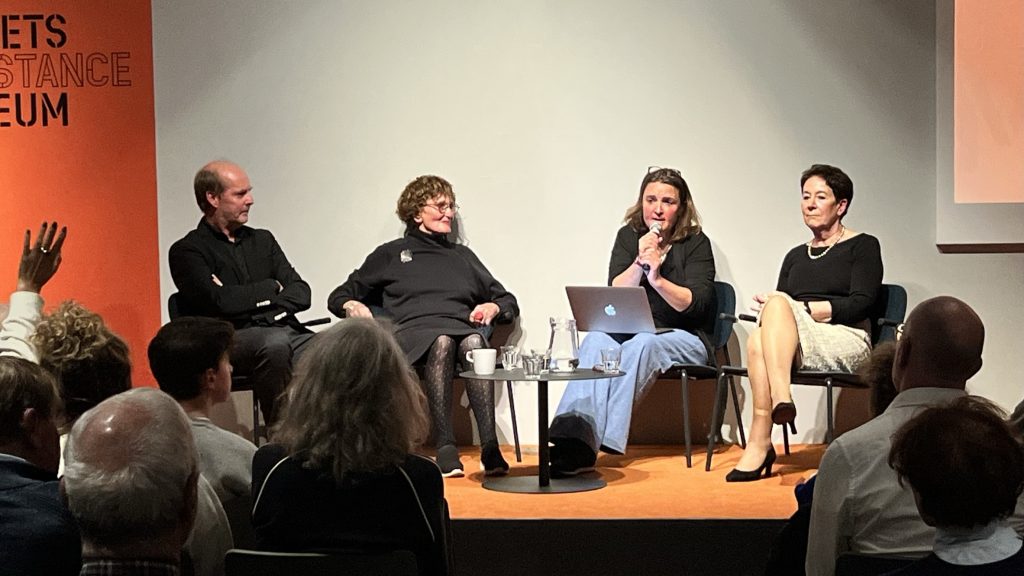
On October 29, the Resistance Museum in Amsterdam hosted the gathering to commemorate the Sobibor extermination camp revolt of October 14, 1943. This gathering is jointly organized annually by the Resistance Museum and the Sobibor Foundation.
What is special this year is that the uprising was eighty years ago. Moreover, Sobibor death camp has regularly been in the news. Starting with articles in the daily newspapers about the presentation of Rosanne Kropman’s book “The Darkest Dark” and with television broadcasts about the commemorations in Sobibor and Westerbork.
Keynote on Holocaust education
Marc van Berkel was invited as keynote speaker on Holocaust education. He has recently been appointed extraordinary professor of Holocaust education at Radboud University in Nijmegen, succeeding Ido Abram.
Read the keynote of Marc van Berkel (Dutch)
He described how education about the Holocaust has evolved since the 1960s, current challenges and the relationship between Holocaust education and combating anti-Semitism. And especially now, after the upsurge of violence in the Middle East , which has also caused unrest in the Netherlands, resulting in the cancellation of several demonstrations. But also with consequences for education. Teachers will have to watch their words even more closely when covering the history and current events of the Middle East.
The “new beginning” after 1945 meant that it was not until the 1970s that specific attention was paid to the persecution of Jews, and only much later did Holocaust education become a compulsory part of history education.
Anno 2023 the interest among young people in the Holocaust is high, although their knowledge is slowly decreasing. The reason could be that history is an elective subject in upper secondary school. Another reason could be that personal testimonies from family members are becoming increasingly scarce. This is why guest speakers are so enormously important and far more important than films with often historically inaccurate information.
Holocaust-related research shows that more than half of young people approve of Holocaust awareness in schools.
However, many teaching materials still offer inaccurate or one-sided information. Teachers’ knowledge is also declining. Many young people reproduce persistent stereotypes and prejudices regarding Jews.
On the other hand, many young people are indeed interested. Especially through stories of relatives they can empathize. Empathy is known to be an effective mechanism for reducing prejudice.
Discussion on Holocaust education
After this keynote speech, the afternoon was continued by a discussion with Bettie Schols-Meents (has been giving guest lectures in schools for the National Support Center Guest Speakers of Westerbork for many years) and Hadassa Hirschfeld (historian, former deputy director CIDI and organizer/guide of youth trips to Auschwitz). This discussion was led by Petra van den Boomgaard.



